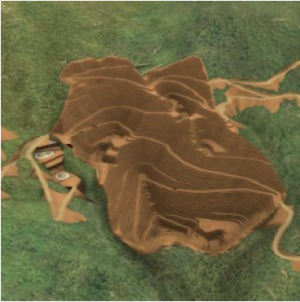
The Angostura Project is located 67 kilometres (41 miles) northeast of Bucaramanga, the capital of Santander. Santander boasts several areas with gold resources, thus there are different kinds of mining operations in the region, mostly small-scale. However, there are also foreign companies involved. Companies such as CVS Explorations, Galway Resources and Barracuda have recently initiated exploration projects in the Vetas-California mining district.
In addition to the traditional water versus mining conflict, the Angostura Project stands to impact a fragile ecosystem. The 80,000-hectare (19,768-acre) Paramo of Santurban is a biological corridor characterised by herbaceous vegetation that ranges from 3,000 to 3,800 metres (9,842 to 12,467 feet) above sea level. It provides water to over 2.2 million people that inhabit the metropolitan areas of Bucaramanga and Cucuta, and 21 other municipalities in Santander and Norte de Santander.
The Surata River Basin is one of Santander’s main sources of water (representing 55 percent of the volume needed by Bucaramanga City). The Oro and Surata Rivers feed the city, while Flora, Tona, La Iglesia, Quebrada Seca, Cacique, El Horno, San Isidro, Las Navas, La Rosita and Bucaramanga constitute the main ravines.
The uniqueness of this case is the continued and successful local resistance that commenced concurrently with the exploitation phase and has lasted until today.
Click here for the factsheet (4 pages): FS_002_Angostura

The project ENVJUSTICE has received funding from the European Research Council (ERC) under the European Union’s Horizon 2020 research and innovation programme (grant agreement No. 695446)